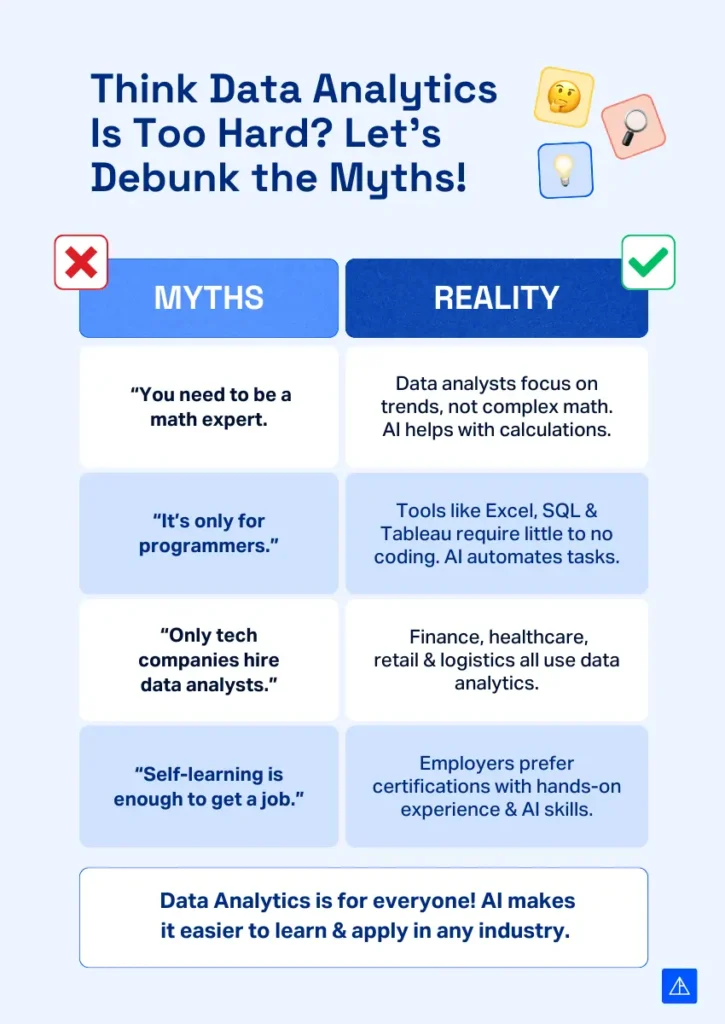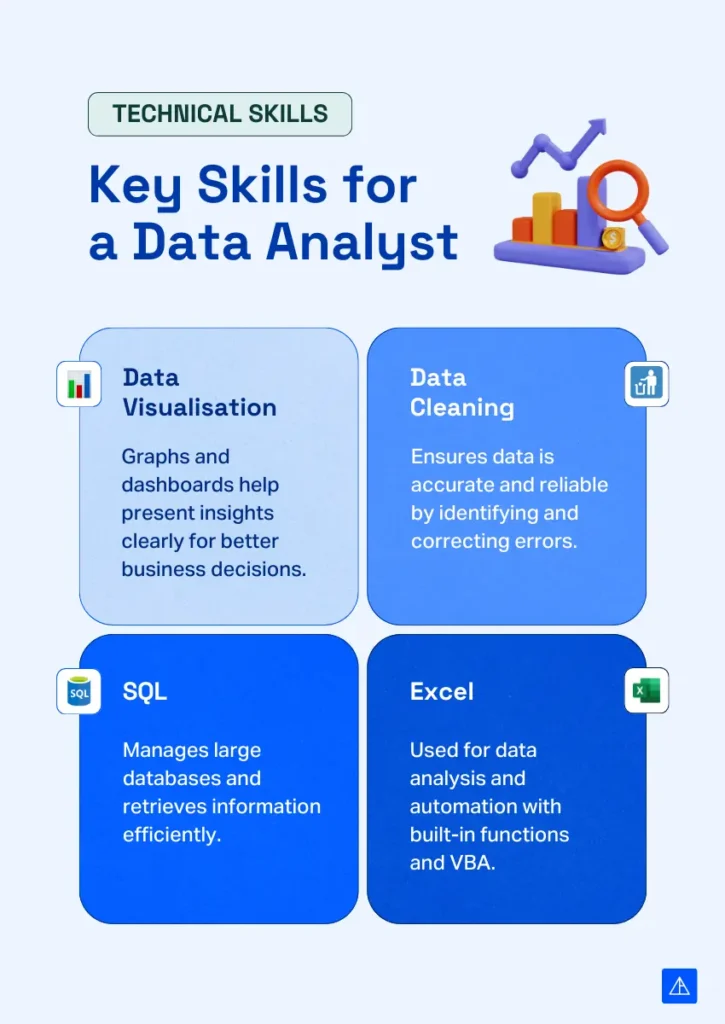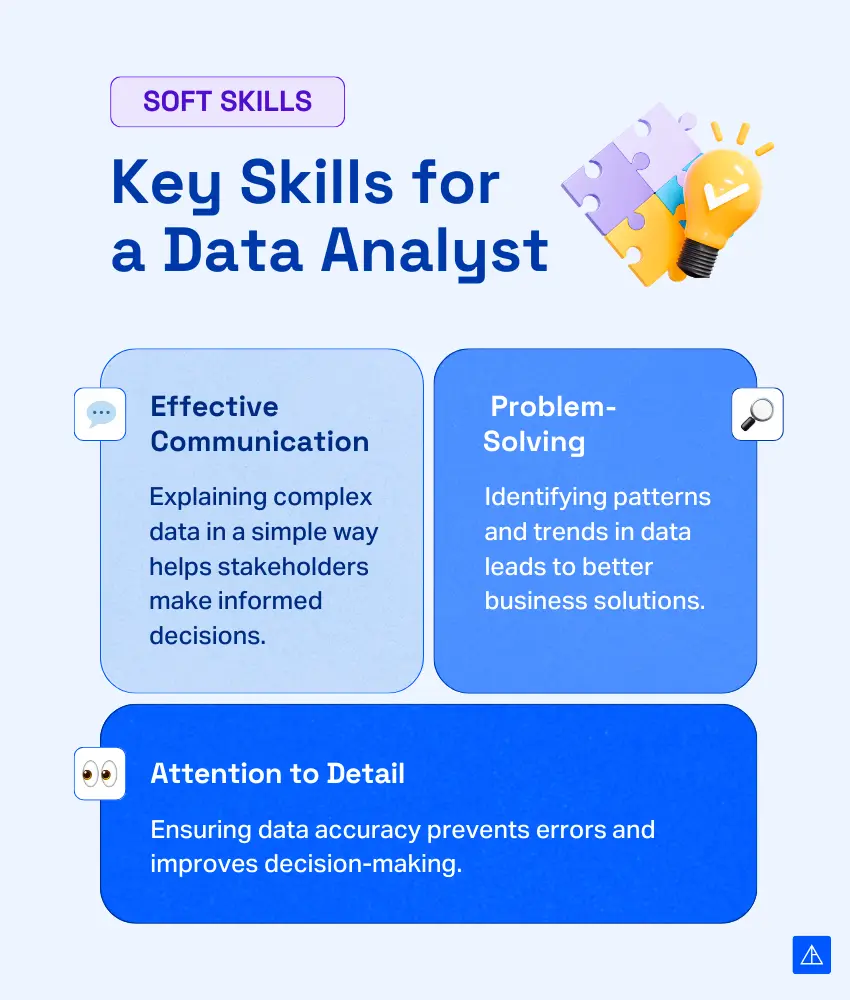Businesses in every industry rely on data to make informed decisions. Finance, healthcare, retail, and entertainment use data analytics to improve operations, understand customer behaviour and drive growth.
With more companies focusing on data-driven strategies, the demand for professionals with analytics skills continues to rise. Learning to interpret and analyse data can open new career opportunities and increase job security.
Taking data analytics certification courses online is a practical way to gain these skills and stay competitive in today’s job market.
Why Data Analytics Skills Matter in Every Industry
Many professionals assume data analytics is only for IT or tech-driven companies. In reality, businesses across finance, healthcare, retail, and logistics rely on data to improve decision-making and stay competitive.
Organisations today collect vast amounts of data, but without skilled professionals to analyse it, that information is meaningless. Employers need people who can turn raw data into clear insights, helping businesses cut costs, improve efficiency, and predict future trends.
Here’s how different industries in Singapore apply data analytics to drive accurate results:
Finance
Local banks in Singapore use data analytics to detect fraud. They analyse transaction patterns to spot anomalies and protect customer assets.
Healthcare
Singaporean hospitals optimise supply chains with data analytics. This helps ensure medical supplies are available when needed and improves patient care.
Retail & E-commerce
Singaporean retailers personalise customer experiences using data. They analyse shopping behaviour to recommend products and create targeted promotions.
Supply Chain & Logistics
Singaporean logistics companies use data analytics to improve delivery routes, reduce costs, and increase operations efficiency.
As data-driven decision-making becomes the norm, professionals with data skills will have a clear advantage regardless of their industry or job title.
Common Myths About Data Analytics Careers
Despite the growing demand, many professionals hesitate to learn data analytics due to common misconceptions. Here’s the truth behind them:
💡 Myth 1: “You need to be a math expert.”
Most data analysts focus on spotting trends and telling data-driven stories. Only advanced roles require deep statistics. AI tools now assist with complex calculations, making data analysis more accessible.
💡 Myth 2: “It’s only for programmers.”
Tools like Excel, SQL, and Tableau work without coding. Even when coding is needed, basic SQL or Python is easier to learn than most expect. AI-powered tools also help automate queries and simplify data processing.
GENERATIVE AI QUIZ
Unlock insights into how Generative AI can transform your career.
💡 Myth 3: “Only tech companies hire data analysts.”
All industries use data analytics. Companies look for professionals who can analyse data in their specific fields.
💡 Myth 4: “Self-learning is enough to get a job.”
Employers prefer candidates with certifications that show hands-on experience. Structured data analytics certification courses online provide real-world projects that boost your resume. AI is now a key part of data analytics, and certification courses help you learn how to use AI tools effectively.
Building data literacy helps professionals stay relevant and make better business decisions. With AI simplifying data processes, professionals only need the right skills to interpret insights and make informed decisions.

Related Article: 15 Data Analyst Job Interview Questions You Should Practice
Key Skills for a Data Analyst
Data analysts need a mix of technical and analytical skills to interpret data effectively and provide actionable insights. Here are some essential skills:
Technical Skills
- Data Visualisation – Data analysts use graphs and dashboards to present insights clearly and understandably. This helps businesses make informed decisions based on visual trends.
- Data Cleaning – Analysts ensure data is accurate by identifying and correcting errors. Clean data improves the quality of analysis and prevents misleading conclusions.
- SQL – Structured Query Language (SQL) allows analysts to manage large databases and efficiently retrieve specific information. It is essential for organising and analysing structured data.
- Excel – Excel is widely used for data analysis and automation. Its built-in functions and VBA (Visual Basic for Applications) help analysts streamline repetitive tasks and improve efficiency.

Soft Skills
In addition to technical expertise, data analysts need strong soft skills to communicate insights and solve complex problems. These skills help them work effectively with teams and stakeholders.
- Effective Communication – Data analysts must explain complex data findings in a way that is easy to understand. Clear communication ensures that stakeholders can make informed decisions based on data-driven insights.
- Problem-Solving – Analysts find solutions to business challenges by identifying patterns and trends in data. Their strong problem-solving skills help them make sense of large datasets and provide actionable recommendations.
- Attention to Detail – Accuracy is essential in data analysis. Analysts must carefully examine datasets to avoid errors leading to incorrect conclusions and poor business decisions.

Related Article: Basics of Data Analytics: Build 7 Essential Skills for a Strong Start in 2025
How to Get a Data Analytics Certification?
If you’re looking for online Data Analytics certification courses, consider those offering hands-on training and industry-recognised credentials.
Data Analytics Course
Turn data to practical insights Using SQL, Excel & Tableau.
Vertical Institute offers beginner-friendly courses that provide a structured learning path, expert guidance, and certification upon completion. Our program is designed to equip you with job-ready skills and to prepare you for a career in data analytics.
FAQs About Data Analytics Certification
Vertical Institute offers live online Zoom classes totaling 21 hours over 7 sessions (3 hours each). Instructors are industry practitioners, supported by teaching assistants for hands-on learning.
Singaporeans and Permanent Residents can receive IBF subsidies to reduce the course fee, with higher funding for those aged 40 and above. Singaporeans aged 25 and above can use SkillsFuture Credits (SFC) to offset the remaining fees. NTUC members can apply for UTAP funding, which covers 50% of the remaining cost, up to an annual cap.
Yes, learners who complete the course will receive an industry-recognised Data Analytics certification. This certificate validates your skills and can be used to enhance your resume or job applications.
Yes, the course is designed for beginners with no prior experience. You will learn essential tools like Excel, SQL, and Tableau, and instructors will guide you through real-world projects to help you build confidence.
Yes, Vertical Institute provides corporate training for businesses looking to upskill their employees in Data Analytics. Companies can benefit from group training, tailored course content, and government funding options to support workforce development.
Conclusion
The way businesses operate is changing. Decisions are no longer driven by intuition but by data. Companies need professionals who can make sense of numbers, identify patterns, and translate insights into meaningful action.
A data analytics certification validates your skills and lets employers know you have the expertise to drive informed decision-making. It creates new career opportunities, increases earning potential, and keeps you relevant in an ever-evolving job market. Moreover, continuous upskilling and selecting a course and training provider that aligns with your career goals ensure you’re not just keeping up with industry demands but staying ahead.



